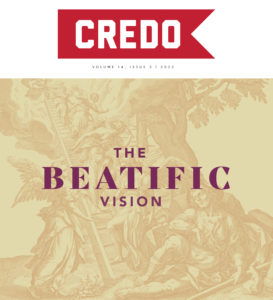
God, and All Things in Relation to God
M ichael Allen of RTS Orlando has compiled a unique series of lectures, essays, and other written works by John Webster with the goal of charting, in a brief but dense single volume, the development of his decorated career as a theologian and introducing his work to new audiences. The T&T Clark Reader in John Webster opens with an editor’s introduction, selected works of John Webster across ten chapters, and a concluding list of his entire corpus. Allen’s purpose in assembling this collection is to distill Webster’s keen interest in what he called “theological theology” and the application of this principle to other topics, be they metaphysics, epistemology or ethics, all under the immanent and economic aspect of the triune God of Scripture.
ichael Allen of RTS Orlando has compiled a unique series of lectures, essays, and other written works by John Webster with the goal of charting, in a brief but dense single volume, the development of his decorated career as a theologian and introducing his work to new audiences. The T&T Clark Reader in John Webster opens with an editor’s introduction, selected works of John Webster across ten chapters, and a concluding list of his entire corpus. Allen’s purpose in assembling this collection is to distill Webster’s keen interest in what he called “theological theology” and the application of this principle to other topics, be they metaphysics, epistemology or ethics, all under the immanent and economic aspect of the triune God of Scripture.
While Webster’s principles in this endeavour remained the same his conversation partners seem to have shifted across his career. Allen notes that Eberhard Jungel and Karl Barth were his chief named companions and interlocutors in the earliest stages of his career. However, Webster’s deference to the tradition of the moral community within which Scripture is read and understood across time led to a gradual shift in his attention from contemporary theologians and towards the inclusion of those from antiquity. Webster saw enormous value in the centuries of contemplation that had been passed on to the faithful of the present and, based on his care and diligence as a publishing academic, seems to have felt a responsibility to steward that legacy and facilitate its ongoing transmission however he could.
Allen begins his guided tour through Webster with two chapters that explain his method and opinion on the task of theology. In ‘Theological Theology’, his inaugural lecture as the Lady Margaret Professor of Divinity at Oxford, Webster called for, “the ‘re-regionalization’ of intellectual life” (36). As Webster surveyed the academic landscape his observation was that education and research, including in contemporary theology, had been informed by the anthropological assumptions of Wissenschaft whereby universal human reason, denuded of tradition or authority, was the final court of appeal. Webster contrasted these modernist claims with those of Bildung, whereby, “to be schooled is to be educated into reflective appropriation (emphasis mine) of the roles and practices of a specific moral and intellectual world” (27). Webster believed that wissenschaft, with its expectation of assimilation to a value-neutral paradigm with authority transferred to the inquirer, had led to “the alienation of theology from its own habits of thought” (29). His diagnosis was that theology had been swept into a current of de novo enquiry rather than learning through deferential citation from within a Christian world of meaning, “shaped by biblical, credal and doxological texts and by the practices which both carry and are carried by those texts” (31).Webster described this interplay between the redeemed reason and Scripture and the goal of fellowship through a cognitive principle and an ontological principle of theology. Click To Tweet
A llen follows this opening chapter with ‘Biblical Reasoning’ which Webster defined as, “the redeemed intellect’s reflective apprehension of God’s gospel address through the embassy of Scripture, enabled and corrected by God’s presence, and having fellowship with him as its end” (59). Webster described this interplay between the redeemed reason and Scripture and the goal of fellowship through a cognitive principle and an ontological principle of theology. Cognitively, “Scripture is the place to which theology is directed to find its subject matter and norm,” and ontologically, the source is God Himself (59). Therefore, Scripture is a function of God and the means by which the redeemed intellect apprehends His voice.
llen follows this opening chapter with ‘Biblical Reasoning’ which Webster defined as, “the redeemed intellect’s reflective apprehension of God’s gospel address through the embassy of Scripture, enabled and corrected by God’s presence, and having fellowship with him as its end” (59). Webster described this interplay between the redeemed reason and Scripture and the goal of fellowship through a cognitive principle and an ontological principle of theology. Cognitively, “Scripture is the place to which theology is directed to find its subject matter and norm,” and ontologically, the source is God Himself (59). Therefore, Scripture is a function of God and the means by which the redeemed intellect apprehends His voice.
In placing ‘Biblical Reasoning’ after ‘Theological Theology’ Allen’s goal is to hammer the methodological point home that theology qua theology ought to be defined by the God who reveals Himself in Scripture rather than by neighbouring disciplines such as literature, history, or philosophy. This is dependent upon seeing Scripture not as an inert deposit of data but as, “an instrument through which divine speech evokes the unselfish, loving and obedient tracing of the text’s movement” (60). Biblical reasoning, then, is an ascetical, self-denying spiritual discipline (61). This chapter culminates in a parting shot at Nietzsche’s legacy within theology. Webster remarked that, “Christian theology cannot remain content with the contemporary commonplace that reason is not much more than a play of power – a commonplace as lazy as it is hopeless. Oriented by and to the divine Word in the testimonies of the prophets and apostles, reason is a sphere of grace, a sign of the overcoming of the disorder of sin” (62). If Scripture were no more than human poetics open to the investigation of reason understood in the light (or darkness) of wissenschaft it certainly could be an instrument weaponized for domination. Except the redeemed intellect, per Webster, is a sphere of grace and “the divine Word quickens reason to knowledge and love of God” (62). The sheer gratuity of Revelation from without, and human surrender unto it, releases the redeemed creature from the curse of genealogical hopelessness so common in contemporary discourse.

